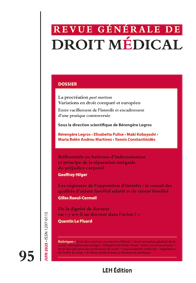0
Panier
0 €

La procréation post mortem en droit italien
Citer cet ouvrage :
La procréation post mortem en droit italien ,RGDM, n°95, 2025, p.37-48
Exporter vers RIS
Télécharge un fichier pour utilisation dans EasyBib, Mendeley, Zotero, etc.
EXPORTER vers RIS
Télécharge un fichier pour utilisation dans EasyBib, Mendeley, Zotero, etc.
EXPORTER vers RIS


